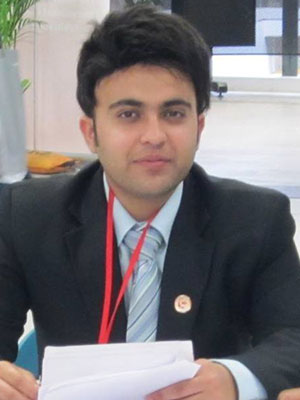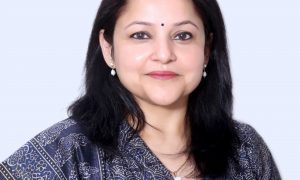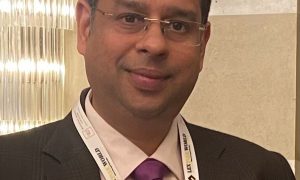 Sanchit Aggarwal is a graduate of Rajiv Gandhi National University of Law, Patiala, batch of 2014. He has recently qualified for the MBA Programme at the Indian School of Business which is one of the most prestigious institutions for pursuing MBA. Currently he’s an Associate at APJ-SLJ Law Offices and will soon be joining ISB.
Sanchit Aggarwal is a graduate of Rajiv Gandhi National University of Law, Patiala, batch of 2014. He has recently qualified for the MBA Programme at the Indian School of Business which is one of the most prestigious institutions for pursuing MBA. Currently he’s an Associate at APJ-SLJ Law Offices and will soon be joining ISB.
We spoke to him about:
- Selection process at ISB
- Balancing studies in law school and MBA prep
- Prospects of BALLB + MBA
When did you decide to pursue an MBA?
Even before I joined Law School, I dreamt of doing an MBA post Law. I have always been fascinated by Business and the art of minting money.
I have always been of the school of thought that being a student of a National Law University, the major take away after five years should not merely be the knowledge of law, but the legal skills that one acquires in the process of the study and interpretation of law, mooting, interning, debating, writing research papers and other activities that a law student takes up. I have never supported the conventional view of practising law after studying law. There are a plethora of avenues out there, awaiting to be exploited. I always wanted to use my acquired legal skills in a business environment, my long term aim being to become an entrepreneur. I think law gives you the edge of knowing the regulatory framework well enough, understanding the compliances and understanding the statutory and other measures required and applying them to run a business. I believe people working in organizations in the top positions ought to have a decent understanding of the law, in order to manage business in their top capacity. Discovering a new avenue was my primary motivation in this journey.
Why did you choose ISB over IIMs?
I preferred ISB over IIM’s and hence aspired for ISB only. The major reason behind this decision was the ideology of ISB compared to that of IIMs. If you compare the level of diversity in both these colleges, you are bound to see a remarkable difference. While more than 90% of the students at any of the IIMs are engineers and mostly boys, the case at ISB is drastically dissimilar. ISB promotes and supports diversity in its students’ backgrounds, similar to the top B-schools in the world. The Class of ISB is a mix of engineers, doctors, CA’s, Army Officers, Government Servants, Social Workers, Economists, Architects, Sportsmen and several other professionals from diverse background. Without denying the fact that majority of students are engineers, the fact that every student regardless of his background is at par and carries with himself the power to do equally good is also true. The curriculum, the activities and other co-curricular activities at ISB are designed to cater to the needs of all individuals and not just one category of students. Thus being a lawyer, I thought it to be a saner decision to join ISB as I would get a more nurturing environment where I could develop myself to my potential, exploit my strengths and not merely follow a fixed path. Many might disagree with my opinion.
Please tell us about the admission process.
ISB accepts only GMAT scores. Getting into ISB is a three stage admission process.
First Stage: You are required to submit a video essay (ISB gives you a topic to speak on, in limited time) and list all your achievements and activities till date.
Second Stage: You have to submit your GMAT score. Further three essays, generally on topics describing your goals, achievements, moments that have changed you etc. Then two online evaluations (recommendations) by your employer or professor or any person under whom you have worked. I submitted one from the VC of my University and second one from Senior General Manager, ICICI Bank.
Third Stage: In the Final Stage you are given a complex case study to solve, generally based on market study and business. Then is the interview by a panel of three consisting of one from the faculty, one alumni of ISB and one from the admissions committee.
These stages are elimination stages.
What was your score for GMAT? Did you take any other MBA entrance exams?
I managed to secure 700/800 on GMAT. Since I primarily aimed at ISB, I did not give any other MBA entrance exams.
What was your preparation strategy for GMAT and how did it change over the time?
I prepared for GMAT for just two months in my semester break. I made it a point to be consistent with my preparation as I had limited time at my disposal. My strategy was fairly simple, i.e. to be consistent, in spite of all the lows and try to commit the least fundamental errors as I couldn’t afford them, due to paucity of time. I also decided to cancel my confirmed internships, to avoid falling flat on my face in my quest for a B-School entry pass. So I dedicated all my time preparing for the second stage of ISB, of which GMAT was an essential element. I focused most on essays and evaluations, rather than blindly focusing on the GMAT. This in my opinion is the biggest mistake that many students make, i.e. by channelizing all their time and energy on GMAT, ignoring other important aspects of the application. B-Schools view a candidate’s application holistically and never pick a candidate for just one star in his application. An Application with good academics, good essays, good profile and a good GMAT score has a higher probability of selection compared to an application with excellent academics and excellent GMAT, but average essays and an average profile.
My suggestion to all B-School aspirants as far as an Admission Application is concerned is that you must try and focus on all aspects of your application, especially on your weakest areas, as your weaknesses would be highlighted before your strengths.
What was your preparation strategy for the Quantitative Ability & Data Interpretation and Verbal Ability & Logical Reasoning?
As I mentioned earlier, I faced scarcity of time. There was a lot to be done and time was limited. Thus time management was the key. I tried spending at least some time on every part of my Application on a daily basis. Being a lawyer I had become a little distant from quant, but I always loved mathematics in school. It took a little time to get adjusted to solving math problems, contrasting to searching for case laws, but ultimately it was fun. I found the Verbal section in the GMAT a little tough. It is very important to have good basics in grammar, fast reading and interpretation skills (a breeze for lawyers) and most importantly good time management to master this section. I started giving mock tests at an early stage in my preparation, just to fast track my preparation and focus primarily on my weak areas.
What kinds of questions were asked by the interview board?
The interview board comprised of an ISB Faculty, an ISB Alumni and a person from the admissions committee. Each wanted to test me on a different ground. My job was to get a unanimous nod from all three.
The ISB Faculty primarily asked me basic questions like ‘Why MBA after Law?’, ‘Where do you see yourself after ISB?’, ‘How will your Legal Background help you with MBA?’ ‘How will you cope up with Accounts and Economics?’
The person from the admissions committee was more concerned in screening my Application. He asked me even minute details from my essays and evaluations. He grilled me on my essays to primarily see whether I had actually written them and how well I could actually explain them.
The most interesting questions were posed by the ISB alumni. I was even asked to do a spontaneous market analysis for law firms in India. Further he primarily wanted to know my aspirations and how I could meet them by studying at ISB. He tested my Business and Management skills to a certain extent.
The interview lasted for around 45 minutes and had me sweating. It was very different from what I had expected, but at the end of it, I actually felt good about myself. My advice to all aspirants would be to keep it as real as possible and not try to fake. Being a lawyer helped a lot, as they definitely see the candidate’s confidence and composure.
What advantages does the combination of Law + MBA entail in the current as well as future market?
The majority of the sectors like Telecom, Banking, Real Estate, Infrastructure, Pharmacy, Trading, Aviation and several other sectors are highly regulated. A person managing these businesses and at a decision making position needs to understand the law, in order to take saner decisions and understand the advice given by the Legal Department. It is important to understand the reasons of the regulations and compliances as well as the consequences of non-adherence. I believe a businessman/ top management individual would greatly benefit from knowing the law and similarly a Law firm Partner level individual would benefit from a formal background in management. Law + MBA combination is gaining popularity in the USA and European Union. JD + MBA is one of the most sought after courses on offer by Harvard. I feel that the future market holds a lot of water for individuals with a Law + MBA background and the demand for them will accrue in the time to come.
Please tell us about the difficulties you faced.
Coming from background where doing an MBA is not even considered as an option, it was never easy to explain my decision to people around me (“ye law ke baad MBA kaun karta hai” being the question I answered more than 10 times daily). Moreover I did not know anybody who could actually help me with my GMAT, essays and other related aspects. I took no coaching as well, thus my biggest source of information were articles and opinions written by people who had cleared MBA entrances. Taking the decision of not doing an internship after the end of my Fourth Year, was very tough and seemed very risky to me at that point of time. But apart from this, I really did not face any other major difficulties.
Do you plan on returning to the legal industry?
I have specialized in Business Laws from law college and plan to pursue the same for the next couple of years. I want to understand the legal aspect of Business transactions and practice relevant Business Laws. Further I also want to gauge the functioning of a corporate law firm in India from a management perspective. I believe being a lawyer I have the privilege of working at a law firm and understanding the operations of the same. So I see no point of directly taking up a marketing or finance job at this stage, without exploring the legal industry.
Answering your second question, I am absolutely open to returning to the corporate legal industry if I feel I can contribute my bit in improving the management and functioning of law firms in India. I believe my experience in the legal industry coupled with my management education from ISB shall put me in a position to improve the operations and management of Law firms in India. But alas I am too young to actually comment on that.
Do you think an MBA has rendered your five years of law education redundant?
Not at all. In fact I feel that MBA will immensely enhance the value of my legal education and enable me to utilize my legal background in a rather non-conventional manner.
As of now I plan to get into strategy consulting post ISB and in the further future, I want to become an entrepreneur.
What would be your advice to the current lot of law students wanting to go to a business school later on?
It is never easy to swim against the tide. But if your dream is different, you ought to think differently. I advise all law students who aspire to go to B-School, to pursue their aspirations to the extent they possibly can and not half heartedly. I say this because it is very difficult to think beyond getting a job when you see your batch mates getting them. It is up to you whether you choose to pursue MBA in India or abroad, or give CAT or GMAT, just be consistent. There might not be many successful examples in front of you, as many lawyers haven’t pursued an MBA, but let this not deter you from doing it, if you believe that it would benefit you.


























